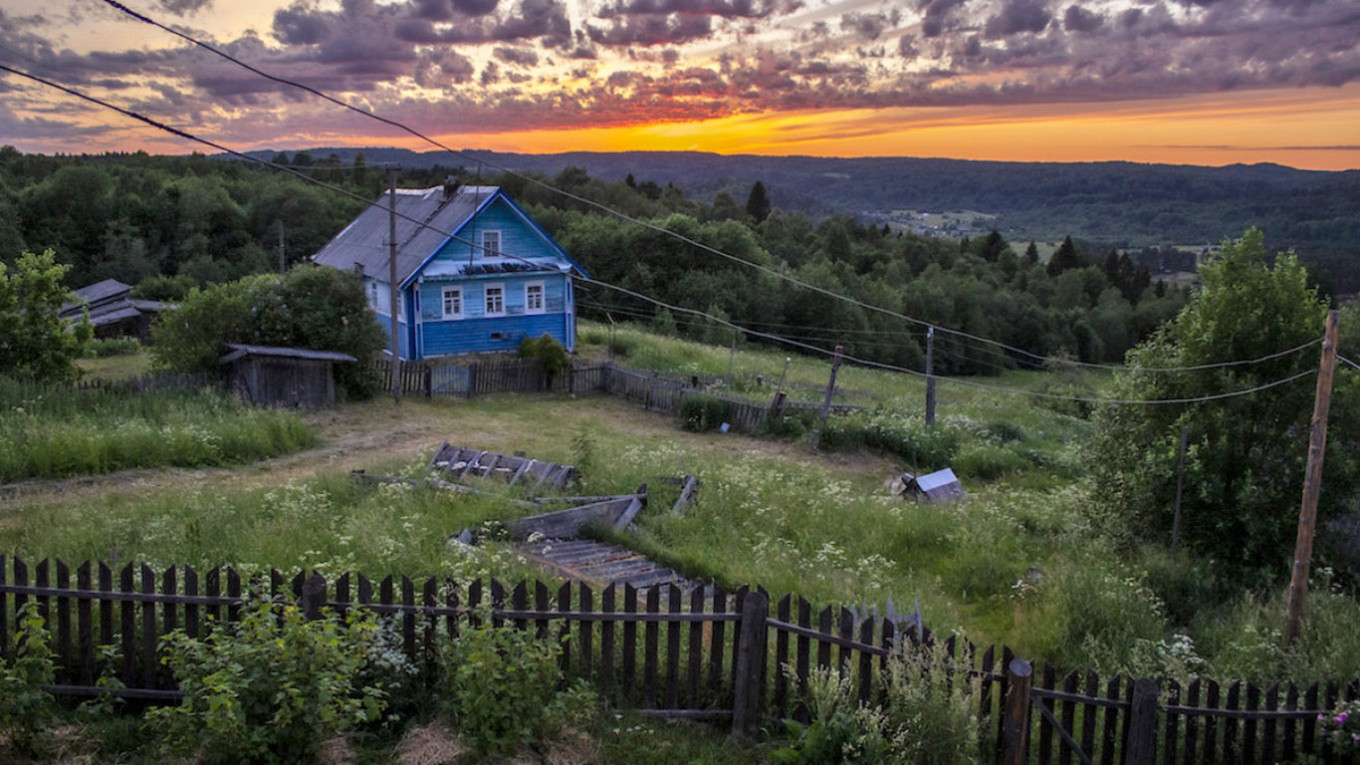Film directors Ilya Zheltyakov and Anastasia Polukhina have the perfect antidote to the stresses of modern life: a week with the Veps, one of the oldest ethnic groups living in Russia today.
The Veps are a small indigenous group in northern Russia. They are a Finnic people who have lived in what is now Russia for millennia — in fact, they were mentioned in the early Kievan Rus chronicles. Their language, Veps or Vepsian, is part of the Finnic branch of the Uralic languages, so old it is called the “Sanskrit of the Finnic languages.”
In 1937, the Soviet authorities began to repress Vepsian culture: they forbade all traditional activities and abolished districts that were designated as Vepsian. A cultural revival slowly began only in the second half of the 1990s, when few Veps were left.
In Russia today, there are about 6,000 Veps, and approximately 1,500 of them live in the Leningrad region. It is believed that about 3,500 Veps speak the Vepsian language.
About ten years ago, film directors from St. Petersburg, Ilya and Zheltyakov and his wife Anastasia Polukhina, were scouting a film location. They wanted a village with no signs of modern civilization. They found a suitable one 300 km from St. Petersburg — the village of Gimreka in the Podporozhye district. Then they shot another film and needed a village woman. Through village elders, the directors learned about the Yaroslavichi village and were impressed by the residents, their character and their histories.
In the summer of 2020, Ilya and Anastasia bought a little Vepsian house. Ilya told The Moscow Times that it is located in what the Veps call the “Yaroslavsk bush of villages” (villages located not far from each other), near the village of Yaroslavichi. About 50 people spend winter in the Yaroslavsk bush of villages, and the youngest resident is more than 50 years old. In the village where the St. Petersburg directors live, only three houses are inhabited in the winter — and one is where Ilya and Anastasia live. There are more people in the summer when some local people return on vacation.
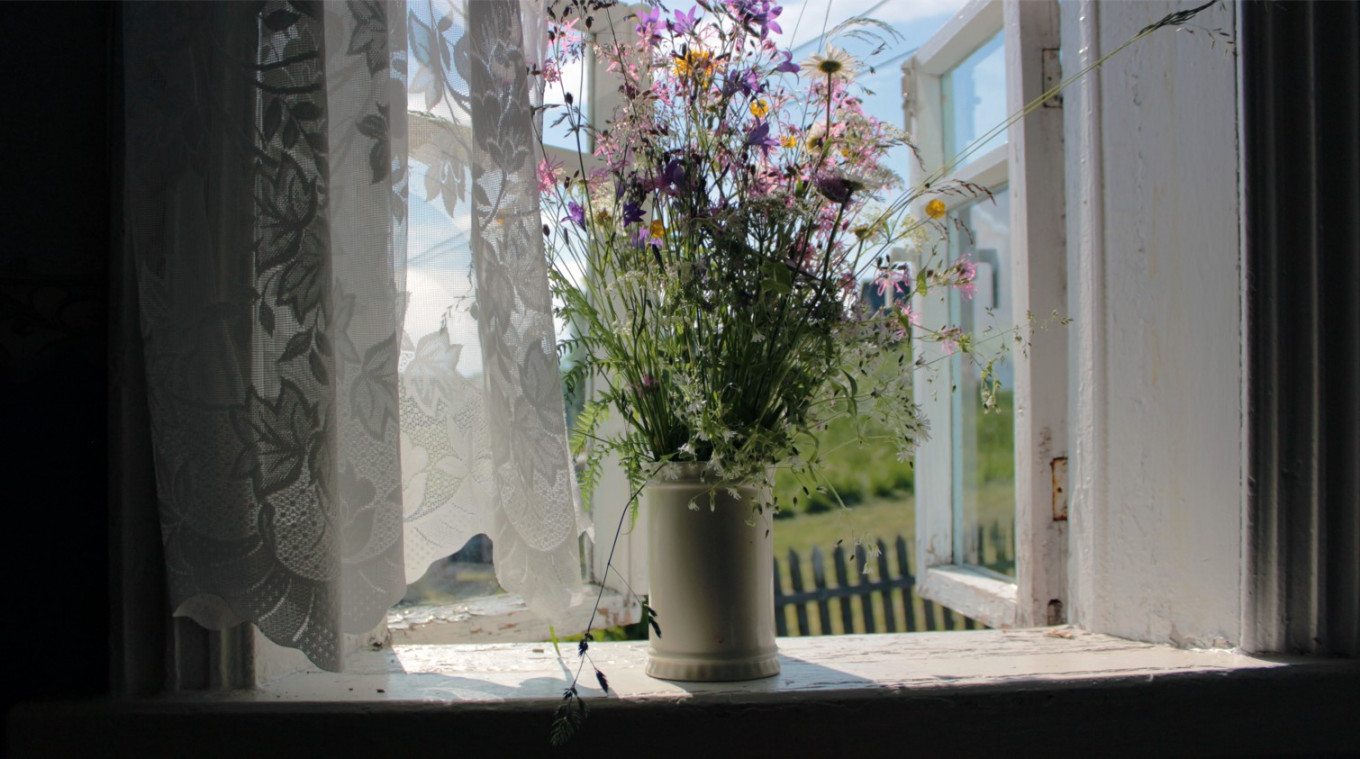
There is cell phone coverage, a dispensary, a cultural center, a store, and a library, but the school was closed in 2009. In the regional center village of Vinnitsa, 30 km away, there is even a Sberbank ATM. In the villages where Ilya and Anastasia tour, sometimes the cell coverage is spotty.
“It would be cheaper to build a new house, but we decided to integrate into the environment instead of building something new. We wanted to find a little house where we could make more or less comfortable living conditions,” Ilya said.
In two months, he and his wife put in water lines and installed a toilet, and they turned the hayloft into comfortable rooms. Neighbors helped to collect items for the interior.
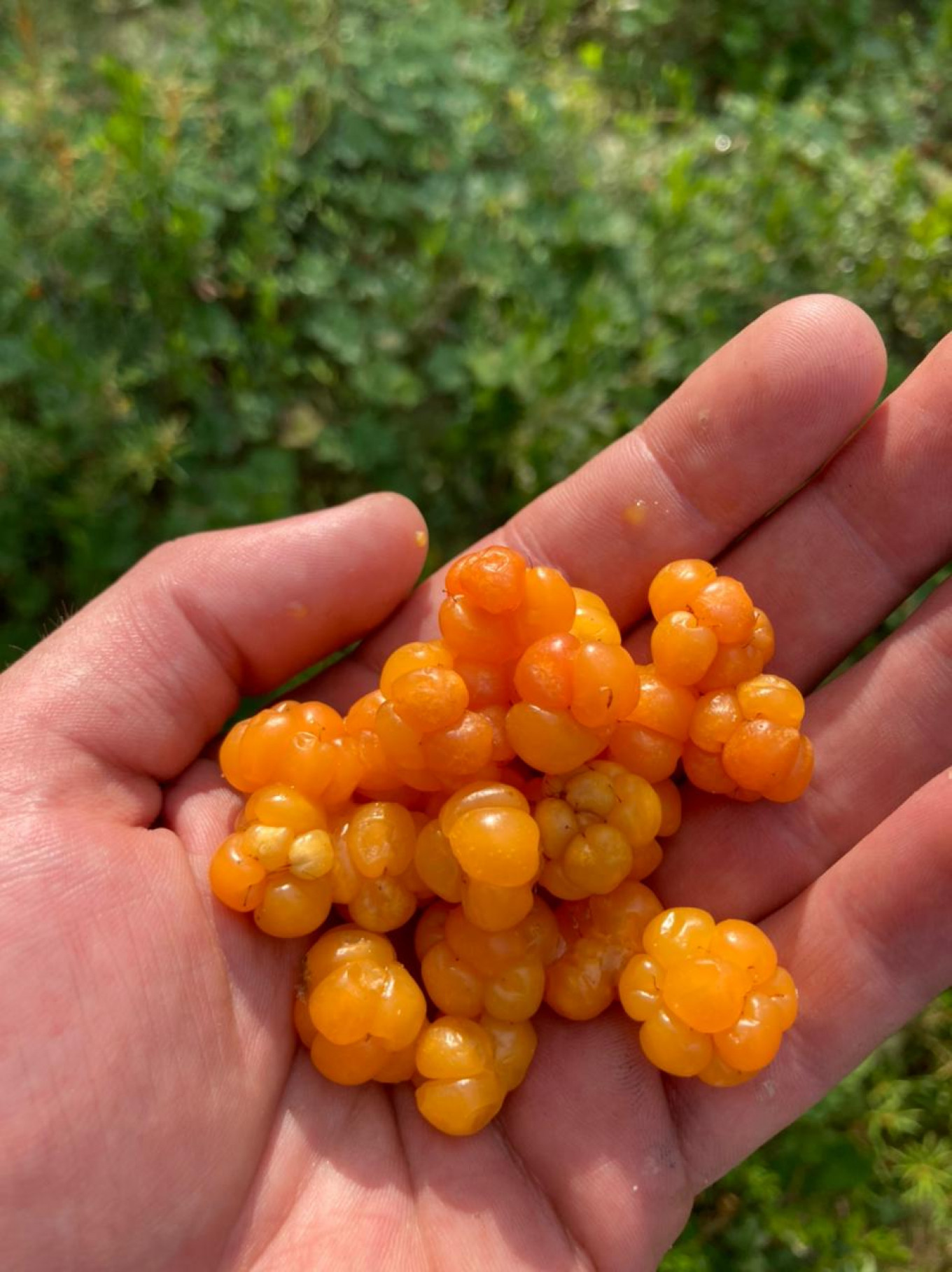
Visiting the Veps
Every year Ilya and Anastasia leave St. Petersburg with their guests (usually not more than eight people) to wander through villages and hike in the Vepsian forest and the shores of Lake Onega. They visit seven wooden churches, an abandoned lighthouse, a pagan temple, and a museum of Vepsian life. But the heart of the tour is meeting and spending time with village people. This is not a tourist trip; it’s a chance to live like Veps.
Together with their guests, Ilya and Anastasia live in a Vepsian house, eat food cooked on a wood-burning stove, steam away aches and pains in a smokey bathhouse and enjoy the northern scenery. There aren’t other tourists for hundreds of kilometers around.
The average age of visitors is 30-40. They are from all over the country. Most have a higher education and work in the creative fields, sciences, or as managers and other specialists. Sometimes entire families come. Many visitors come back for a second or third time.
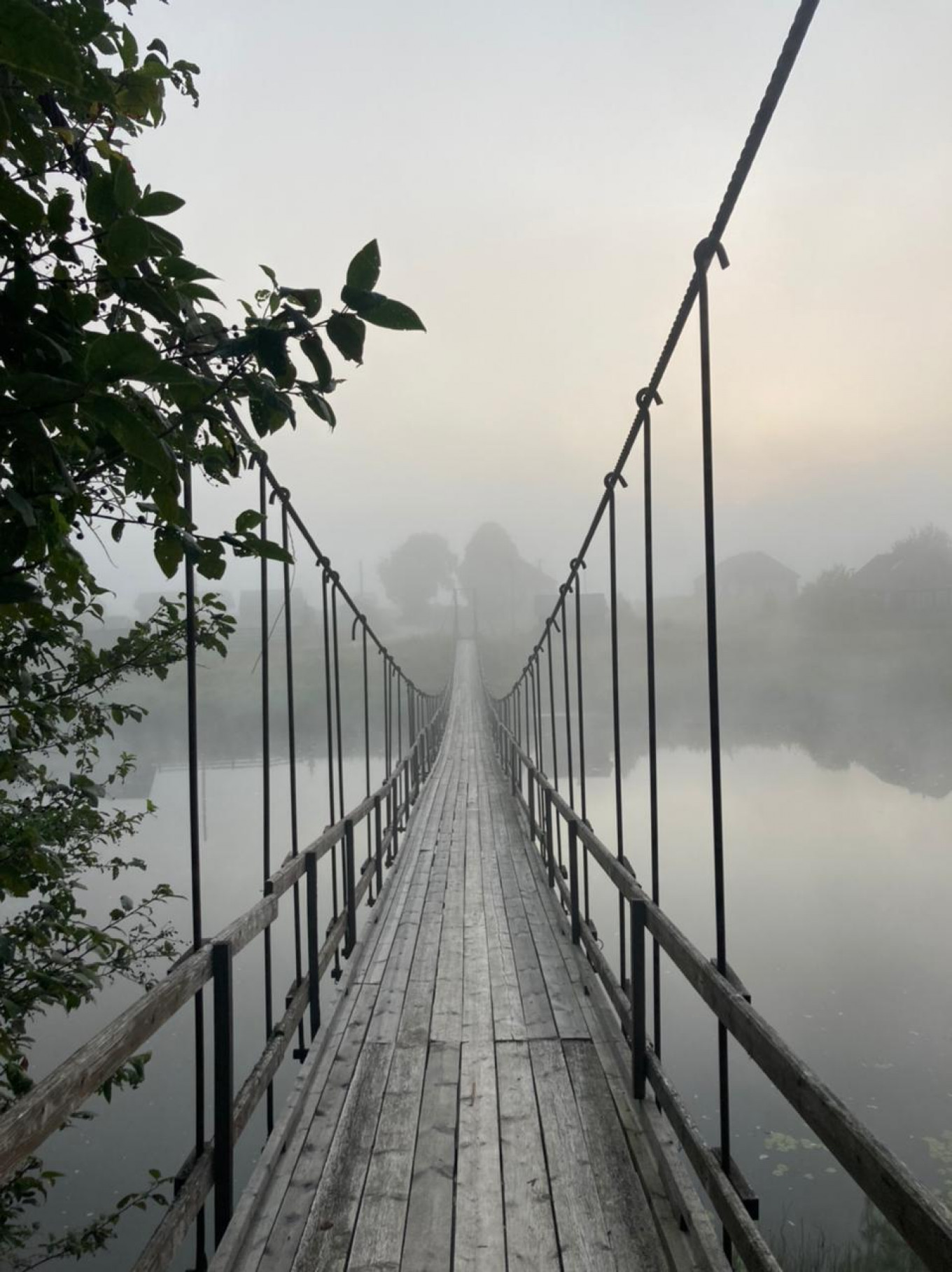
Veps are very hospitable, but there are some spheres of their life where they prefer not to admit outsiders. For example, they still believe in the spirits of the forest, and their life is built on traditions associated with paganism. Each village has a sacred place where Veps go to talk to forest spirits: it may be a stone, a tree, or something else. But at the same time they believe in the Christian god. And then in almost every village there is a healer or a sorcerer, and local residents often seek their help.
“We have excellent relations with the villagers, and they know that we take this very seriously,” Ilya said. About 15 Veps work for the project, and they appreciate the respectful attention to their culture and lives.
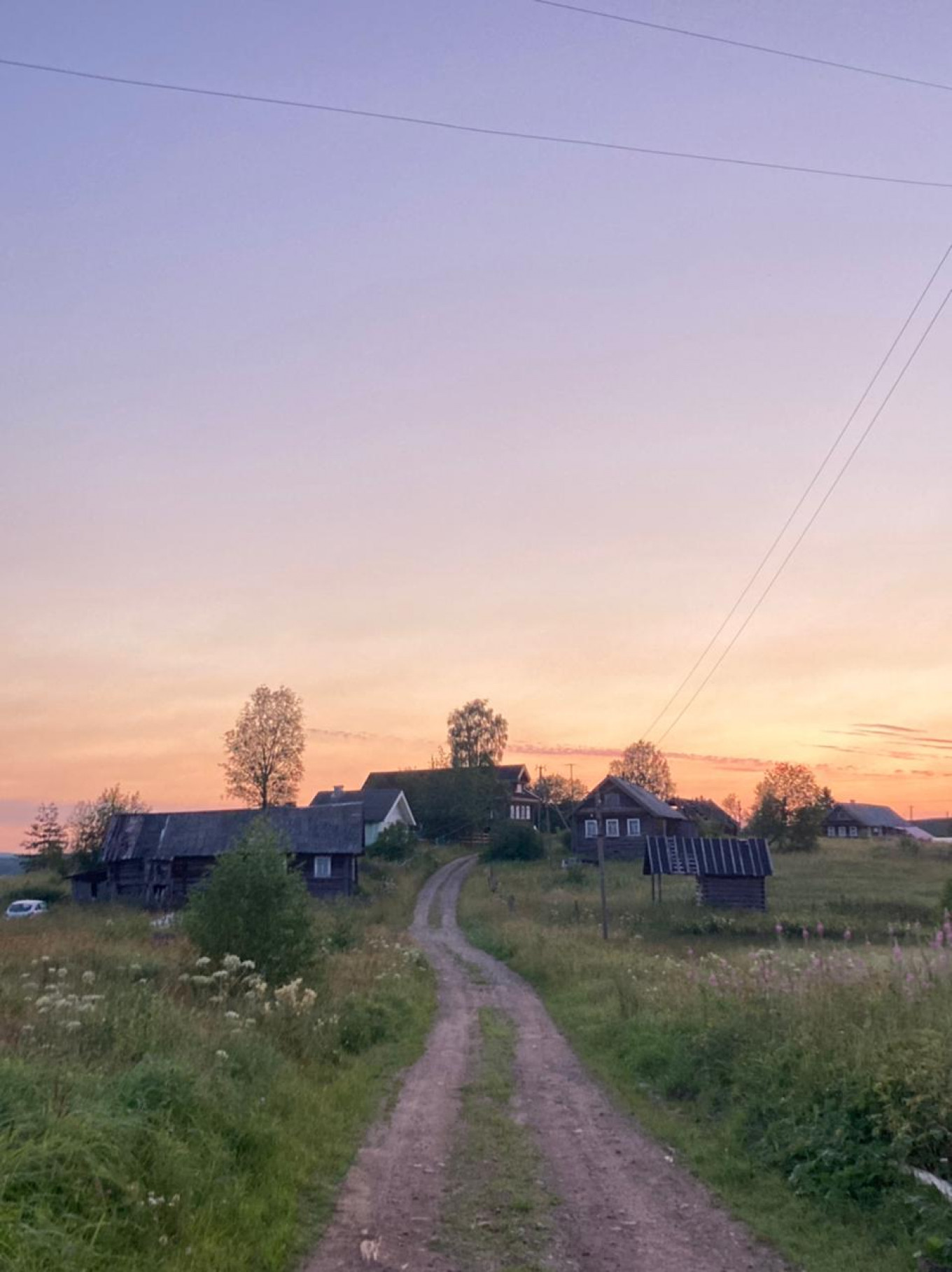
Saving the Veps
This summer Ilya and Anastasia have been visiting remote villages on the Kola Peninsula, and next year they’d like to start tours across the territory of the northern Veps around Lake Onega — and perhaps buy a larger house there.
They also have plans to join with other like-minded people to create an organization and draw up a “roadmap” — an action plan of key decisions to improve the situation. This is similar to a project in Finland to support the Saami. “We are going to help people to find a similar way to do that they did many decades ago, but in today’s conditions. For Veps, it’s farming,” Ilya said.
He added that the state program to support indigenous peoples of Russia isn’t effective. The celebration of special national holidays doesn’t affect the culture as a whole, and the construction of museums mothballs culture rather than supporting its development. "To help the Veps means helping them stay in their traditional lands and making it possible and attractive for others to return," he said. "The culture of Veps is a village culture, and it can only thrive in the countryside."
“We don’t believe that we alone can save the Veps’ culture, but if there are many more projects like this, things may change for the better," Ilya said.
For information about the tours, see the Woods and Wind site.
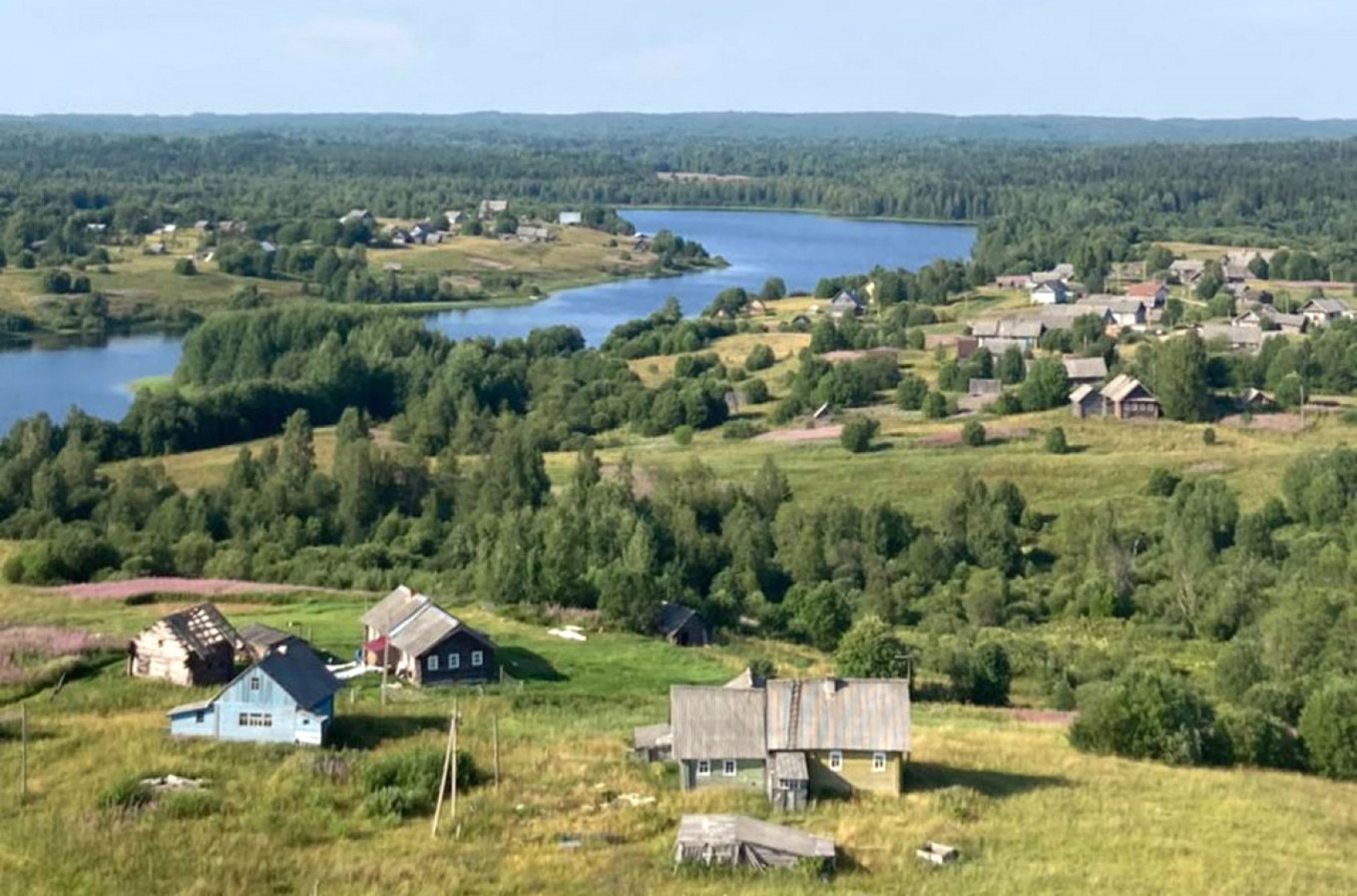
A Message from The Moscow Times:
Dear readers,
We are facing unprecedented challenges. Russia's Prosecutor General's Office has designated The Moscow Times as an "undesirable" organization, criminalizing our work and putting our staff at risk of prosecution. This follows our earlier unjust labeling as a "foreign agent."
These actions are direct attempts to silence independent journalism in Russia. The authorities claim our work "discredits the decisions of the Russian leadership." We see things differently: we strive to provide accurate, unbiased reporting on Russia.
We, the journalists of The Moscow Times, refuse to be silenced. But to continue our work, we need your help.
Your support, no matter how small, makes a world of difference. If you can, please support us monthly starting from just $2. It's quick to set up, and every contribution makes a significant impact.
By supporting The Moscow Times, you're defending open, independent journalism in the face of repression. Thank you for standing with us.
Remind me later.


